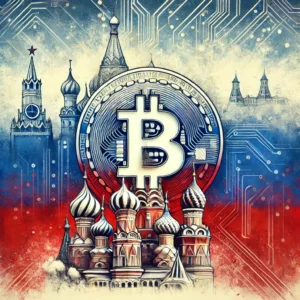The global conversation around Bitcoin (BTC) as a reserve asset is gaining momentum. Nations worldwide actively explore how cryptocurrencies can complement or transform their financial systems. Amid this global shift, Russia, a significant player in the geopolitical and economic landscape, is poised to reconsider its stance on Bitcoin as a reserve asset. While some predict this shift to be centuries away, the rapid pace of adoption worldwide suggests otherwise.
Global Trends Pushing Bitcoin’s Adoption
The global financial landscape is witnessing a surge in countries integrating Bitcoin into their monetary policies. From El Salvador declaring BTC as legal tender to increasing talks in Africa and Latin America, the world is moving swiftly toward recognising cryptocurrency’s potential. Such developments create a ripple effect, pressuring larger economies like Russia to stay competitive.

While some cite concerns over Bitcoin’s price volatility and the uncertain mechanisms of its issuance, advancements in blockchain technology and broader adoption are increasingly addressing these issues. As Bitcoin stabilises through global usage, these technological challenges are expected to diminish, making it a more viable option for reserve purposes.
Russia’s Current Crypto Framework
Russia’s cautious approach to cryptocurrency has thus far limited its use to foreign trade operations, primarily to facilitate international settlements for businesses. This conservative stance reflects the state’s priority of safeguarding its financial ecosystem. However, steps have already been taken to integrate crypto more fully. The recent introduction of a taxation law for digital currencies marks a significant milestone, signalling Russia’s intent to build a robust legal framework for the crypto industry.
The potential for hybrid banking solutions, combining cryptocurrencies and fiat currencies, also points to a growing openness to innovation. Such tools would bridge traditional finance and the crypto economy, making cryptocurrencies more accessible and practical for broader use.

The Case for Bitcoin soon
Bitcoin’s potential as a reserve asset lies in its decentralisation, scarcity, and resistance to inflation—qualities that resonate with nations seeking alternatives to fiat-dominated reserves. With global talks about BTC as a reserve asset accelerating, the idea no longer seems as far-fetched as some century-long prediction suggests.
Moreover, Russia stands to benefit immensely from leading this charge. Leveraging its significant crypto-mining capabilities and further strengthening its legislative framework could make it a pioneer among major economies. The projected tax revenues from mining, estimated at 50–60 billion rubles, are a clear indicator of the economic potential crypto holds.
A Future Closer Than Expected
As more nations embrace Bitcoin, the pressure on Russia to adopt a forward-thinking approach intensifies. With the groundwork already being laid, it’s not a question of “if” but “when” Bitcoin becomes a reserve asset. The near future could see Russia leveraging BTC not just for international trade but as a cornerstone of its financial strategy, keeping pace with a rapidly evolving world.
